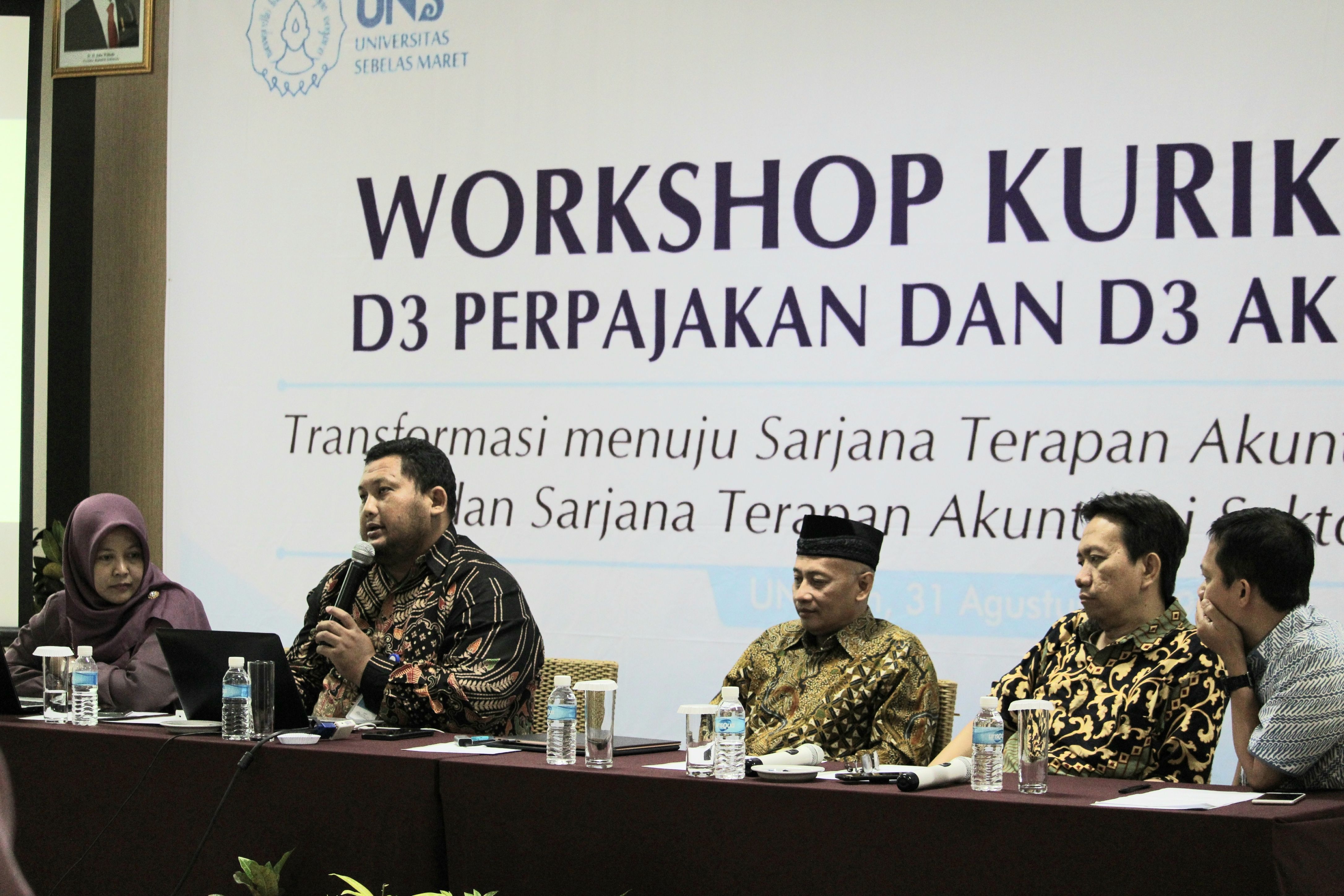
Toward Applied Bachelor: The Diploma in Accounting Study Program Conduct a Curriculum Workshop
Vocational school is developed rapidly, this is driven by the publication of the Regulation of the Minister of Research, Technology, and Higher Education (Permenristekdikti) Number 54 of 2018 on the implementation of ‘Open Multi-Entry Multi-Exit (MEME)” vocational education systems with high flexibility. This enable the students to finish their study at Diploma level on 6th (sixth) semester, with no Drop-Out system.
“All study program is encouraged to be an Applied Bachelor or Diploma 4, or if possible to the level of applied Master and Doctoral. To be able to achieve this, the curriculum of vocational school should be designed to cover 70% of practice and 30% of theory, which differs from the Bachelor program that more focused on theory,” explains Santoso Tri Hananto, the Director of Vocational School Universitas Sebelas Maret (UNS) during his opening remarks in Curriculum Workshop for Accounting and Taxation Diploma Study Program, Saturday 31st August, 2019.
To support this learning system 50% the lecturer should come from industrial background. During internship course, the students are expected to work as if they are a real staff in the company and not only to fulfill their study obligation. Students are encouraged to take internship for approximately 5 (five) months. This aims to build a strong networking with industrial field.
Further he explains that the composition for diploma program (3 years period) is 3-2-1, which mean students spent 3 (three) semesters for classroom lecture, the next 2 (two) semesters for internship, and the last 1 (one) semester for Final Project, which assessed by the university and industry member. Meanwhile for the 4 (four) years diploma program the composition is 4-3-1, where 4 (four) semesters for lecture, 3 (three) semesters for internship, and 1 (one) semester for Final Project.
Related with the curriculum for the vocational school, one of the speakers, Muh. Nurcholis who is a Tax Consultant, provides several inputs on the courses that should be taught to the students. Nurcholis also mentions that the students should be trained to have a competency to not only work according to the standard operation and procedure or a standard job, but also a skill to work on manage a series of different tasks as well as a skill on fast and accurate decision-making when problem arises.
Other speakers invited on the workshop are Eko Madyo Sutanto (Vice Director of PKU Muhammadiyah Solo Hospital) and Didi Rafii (Staff of Tax Office, Solo). The workshop is attended by students, alumni, lecturers, and practitioners from various field. Various inputs that was given by the participants will be considered for the management of the vocational program to improve the curriculum, especially for the Accounting and Taxation Diploma Study Program.

